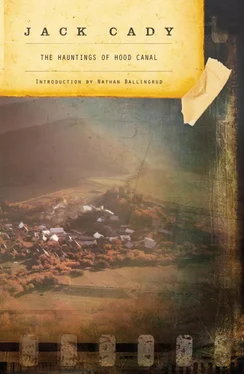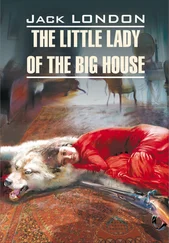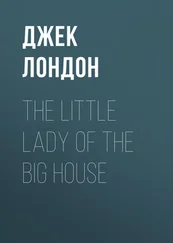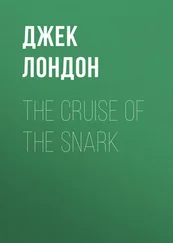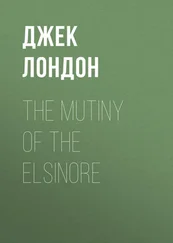Statistics do not pant, sweat, tumble on rumpled beds. They do not bleed. They do not dream. Statistics give measurable rates.
The birthrate rose like a scared cat going up a tall tree. So did the rates for divorce, insanity and suicide. The crime rate rose. It nearly equaled other rates. Those, more mundane, suggest an important story.
Suburbs grew from cornfields faster than those same fields have ever produced grain. Universities expanded like the castles of wizardry. A transportation system of rails had been sufficient to run a war. It was insufficient to run a peace. The trucking industry doubled, then doubled again, then doubled again. In 1939 I remember being driven twenty miles so our family could ride on a new section of three-lane road. By 1945 that road was scrap, although it was still the best road around. By 1950 it was laughably obsolete. In 1944 it was still possible and practical, because of rationing, to make horse-drawn deliveries on the streets of major cities. By 1947 the vestigial remains of the work horse had disappeared. Our hero had no time to waste on inefficiency.
The initial step of revolution was to build. For a while it did not make much difference what was being built, as long as one stone was placed on another. When concrete was poured for a new foundation no one asked why. No one cared to ask. Poor no more, they would be poor no more.
…it was at moments such as these that he (Frank Hirsch) felt most alive he thought because he was seeing in his mind a deal like this and elaborating it and it was these moments that he lived for but not because during them and out of them he had developed his best money-making schemes that were now paying him dependable profits and someday the profits would be bigger a lot bigger, no. The thing itself was the thrill….
—James Jones,
Some Came Running
Like Gatsby, Nixon was a boy scout. That is here taken to mean of an innocence which suspects thought, a fatuousness that collects baseball cards of some denomination, and a respect for the conventional wisdom. J. Edgar Hoover was a boy scout. Gerald Ford appears in such a line-up as a Cub. These men, held to be representative of two separate generations, have as much to do with our hero’s generation as a balsa model of a Piper has to do with a Tri-motor. The Tri-motor was awkward and ungainly but it flew. The Piper is slick with glossy paper and enamel and it is powered by a rubber band.
There never has been, and likely never will be again, a nation more enamored of education than was this nation in the late ’40s and the ’50s. At a time when one half of one percent of the British population ever saw the inside of a university, the U.S. opened every door and built new doors, sometimes for the sheer joy of opening them.
What was meant by education is another matter. We look at then, look at now, shake our heads and understand. Poor no more. They went to school in order to achieve success. They were hungry enough to cultivate hunger of belly and mind against the time when there would never be hunger again, anywhere. When one considers that this was the age of the rebuilding of Europe, the rebuilding of Japan, the Marshall Plan, and the wild and indiscriminate sharing and spreading of wealth through the world, it is clear that this was not a generation of Gatsbys and Nixons. They were revolutionaries. They were idealists as well. The new faith was a faith in universal wealth. In the ’60s the faith would turn to dogma as it became clear that the revolution was lost. My friend remembers her father, our hero, as an exciting man when she was a child. He invented things, worked incredible hours and taught radical ideas. As she grew older, it seemed to her that he changed.
The faith turned to dogma because of the education they sought. That generation produced few philosophers and fewer theologians. It produced countless scientists, social scientists and designers of systems. There was no system they could not design, and today, as the systems wear thin and fall apart, it is not because of the original design but because of the overload… and they were not philosophers.
The Reformation of the ’60s was a direct result of a lack of philosophy in these revolutionary idealists. They had broken the old rules and they had paid the price in madness, guilt and suicide. Now they would pay another price. Since they had no philosophy to teach their kids, they had thoughtlessly trotted out the philosophy they had learned as kids. It was a way of life tailored and tested for community in a fundamentally agrarian system. It still worked well in Kansas, though not too well in Topeka.
I realize you have this very big love and you want to do some very fine things with it. But I’m afraid you won’t be able to do anything beneficial until you really start to think and get inside what’s causing this love. You are going to have to think very clearly about basics and about the moves you can make to bring about changes in the things you see wrong. It doesn’t do any good to get angry. It doesn’t do any good for you to sit here with me unless you can find in all this something of your own to say.
—Buckminster Fuller
As the system failed, and it did most starkly fail, the revolution died. Our hero watched his friends become dogmatic and he felt the same. To this day he does not understand what happened, and neither do I, and perhaps no one does. I do know this:
They raised a generation of kids to believe in expectations that became increasingly unreal in the world that was building. Their attitude was unreal. If I have heard it once, I have heard it ten thousand times that, “My kid is not going to have to put up with what we went through.”
When they turned out a predictable percentage of spoiled brats they could not understand why. When their peers, through affluence, began to turn into aging spoiled brats, they did not understand why. When the kids began demonstrating and the boy scouts shrieked of God and Patriotism and “Love it or leave it,” they felt betrayed. In protecting their revolution some turned to hatred, some to indignation, and most became silent… a silent majority that feared the failure that was now upon them. A majority facing more banality and lies and exploitation, as they had faced it since 1920. Piles of red tape lay at their feet. This is not what they had meant; it is not what they had meant at all. There was no way to say what they had meant. They had forgotten to try to put it into words and it was too late to put it into tears.
…1973 Newport Jazz Festival… Gene Krupa, his health rapidly deteriorating, had dragged his weary body to make the gig… He (Benny) was deeply concerned, as were those who knew how sick Gene really was, and as I look back upon it now, I have the feeling that the reason that Benny didn’t play especially well that evening was because for one of the few times in his life he was concerned with something that mattered even more than his music.
—George Simon
Soon it will be time for them to pass from the scene. They will take their contrary mules, their memories of bread lines, their hallowed halls without ivy. They will pack them up and go. It is predictable that they will pass in silence. There is nothing more to say.
It was a vision, perhaps. Perhaps it was only an illusion. It was the memory of the memory of a dream. It was awkward and maybe as useless as a grounded silver plane with its nose pointed at the air; and yes, yes, dear friend, it all happened before the Theatre of the Absurd.
As winter turns to spring the woodpile gets to looking small and lost and lonesome. Wind still humps along this northwest coast, bringing snow and rain from out of Alaska. People still hunch before stoves while admiring the thought of daffodils. Sometimes even the oldest heads and hands get caught with knowing we’ve got more winter than they’ve got woodpile. That’s what happened to Mitchell around crocus time, and a month before the daffodils.
Читать дальше
